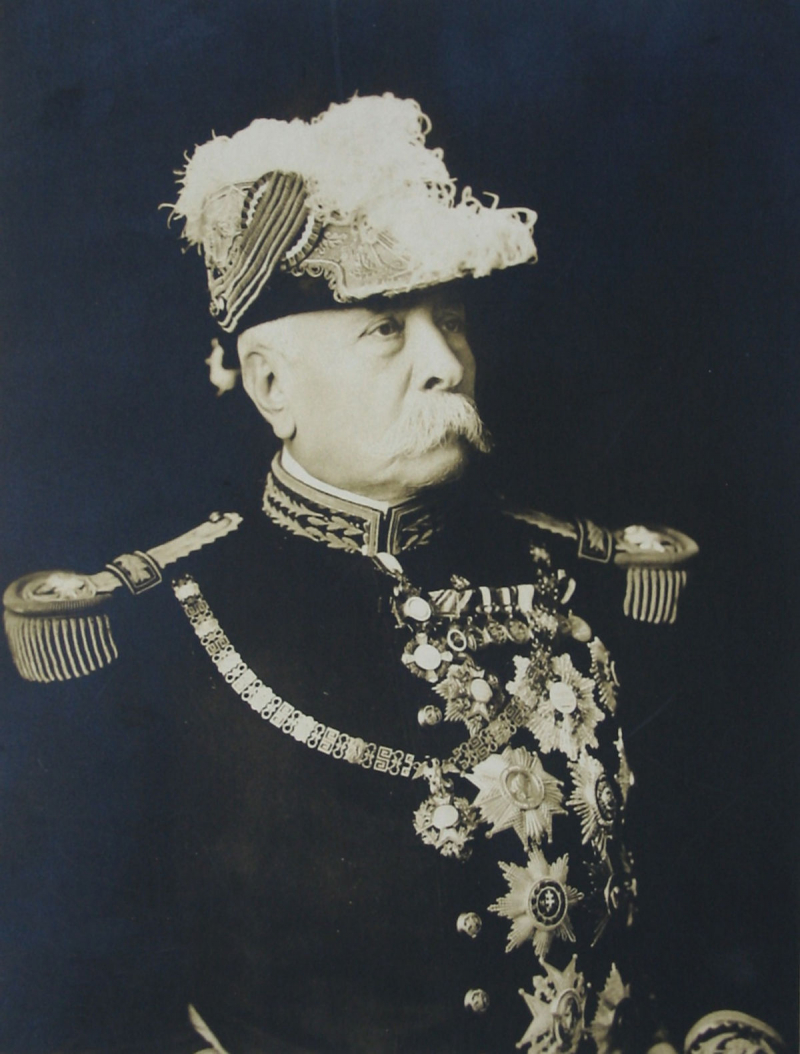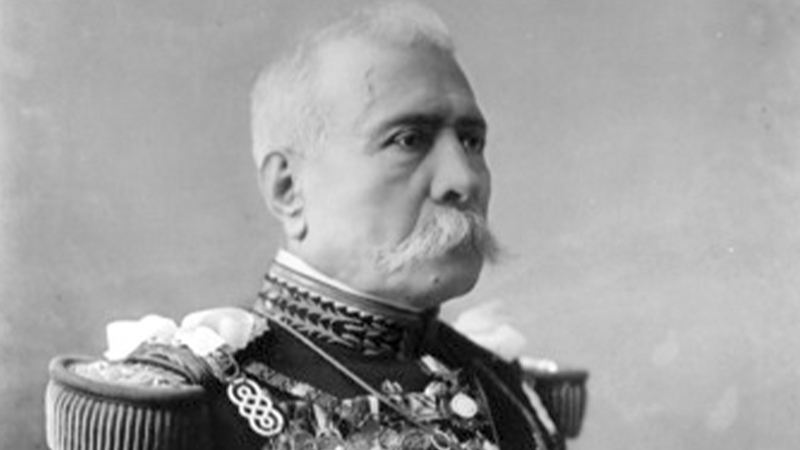Porfirio Díaz
José de la Cruz Porfirio Díaz Mori (15 September 1830 - 2 July 1915), also known as Porfirio Díaz, was a Mexican general and politician who served seven terms as President of Mexico, spanning 31 years, from 28 November 1876 to 6 December 1876, 17 February 1877 to 1 December 1880 and from 1 December 1884 to 25 May 1911. The entire period from 1876 to 1911, which has been described as a de facto dictatorship. He is among the most important historical figures in Mexico.
Veteran of the Reform War (1858-1860) and the French intervention in Mexico (1862-1867), Díaz rose to the rank of general, leading republican troops against Maximilian I's French-imposed rule. He later revolted against presidents Benito Juárez and Sebastián Lerdo de Tejada on the principle of no re-election. Díaz was successful in seizing power, deposing Lerdo in a coup in 1876 with the assistance of his political supporters, and was elected in 1877. He stepped down in 1880, and his political ally Manuel González was elected president and served from 1880 to 1884. Díaz abandoned the idea of not running for re-election in 1884 and remained in office until 1911.
Díaz's regime, a controversial figure in Mexican history, ended political instability and achieved economic growth after decades of stagnation. He and his allies were members of a group of technocrats known as científicos ("scientists"), whose economic policies benefited a circle of allies and foreign investors, assisting hacendados in consolidating large estates, often through violent means and legal abuse. These policies became increasingly unpopular, resulting in civil repression and regional conflicts, as well as strikes and uprisings from labor and the peasantry, groups that did
Despite making public statements in 1908 favoring a return to democracy and declining to run for office again, Díaz reversed his position and ran in the 1910 election. After Díaz declared himself the winner for an eighth term, his electoral opponent, wealthy estate owner Francisco I. Madero, issued the Plan of San Luis Potos calling for armed rebellion against Díaz, sparking a political crisis between the cientificos and the followers of General Bernardo Reyes, allied with the military and peripheral regions of Mexico. After the Federal Army suffered several defeats against Madero's forces in May 1911, Díaz resigned in the Treaty of Ciudad Juárez and went into exile in Paris, where he died four years later.









